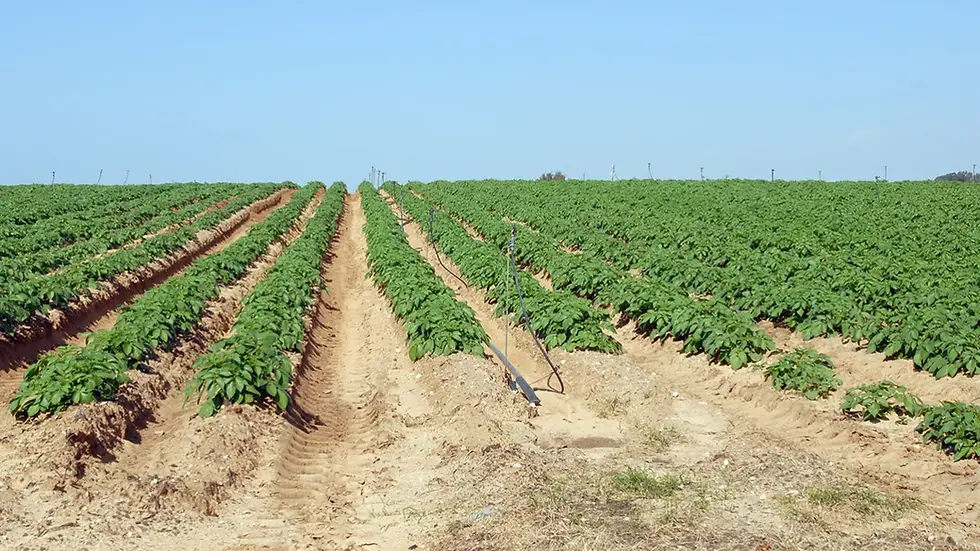In the Sukkah, as in life, we are both vulnerable and safe
- Rabbi Amy Eilberg
- Oct 18, 2019
- 3 min read

Ten months after the Loma Prieta earthquake in 1989, I moved to Palo Alto. When our first Sukkot arrived, members of the Jewish community were talking about their memories of the earthquake that had occurred during Sukkot the previous year.
Everyone had their own unique memories of fear and awe, concern for loved ones, loss and gratitude. But one story recurred in virtually everyone’s story. While the earthquake had caused significant damage to the Stanford campus, every sukkah in the area had remained intact.
At first the story sounded like an urban myth, and I was skeptical. But as I listened to the account again and again — from a wide range of people — I began to appreciate the story’s deeper meaning, regardless of its historical veracity.
The image of the sukkah unshaken by the movement of the Earth brilliantly captures the paradox of the sukkah. We move into the sukkah to get closer to the Earth and to God, feeling our utter vulnerability and dependence on The One, as our ancestors did during 40 years of traveling in the midbar (wilderness).
Without our “stuff,” the comforts of home and the apparent security of our well-constructed homes, we are at the mercy of the elements. We are vulnerable to rain, wind and cold. We are physically unprotected, with no buffer between us and the Earth.
The Loma Prieta story suggests that, paradoxically, the sukkah is the strongest structure there is, at the same time that it is fragile and precarious. Our houses are built of robust materials. They have walls that dependably separate us from our neighbors, the elements and the Earth. We live in the comfortable illusion that our homes will never fail to protect us … until they do — and we are shocked.
The sukkah, by contrast, has no presumption of invulnerability. We expect occasional wind, rain and discomfort. And we fill the sukkah with loved ones and even with neighbors beyond our normal social circle. We take risks in the sukkah — that we will stay comfortable, both physically and interpersonally. We open ourselves to the primal pleasures of being closer to the Earth, to one another, and to the Divine.
The sukkah has its own unique power, including its suppleness in the face of wind and rain and its openness to people beyond our usual circles. The strength of the sukkah is the power of spirit, where strength includes rolling gently when weather challenges and life’s twists and turns shake us. Sitting in the sukkah, we take in the beauty of the sky, the stars, and the fruits of the harvest. We are close to the ultimate Power, but without pretense of invulnerability.
The late Rabbi Alan Lew said it best, in his book “This Is Real and You Are Completely Unprepared” from 2003:
So now we sit flush with the world, in a “house” that calls attention to the fact that it gives us no shelter. It is not really a house. It is the interrupted idea of a house, a parody of a house … And it exposes the idea of a house as an illusion. The idea of a house is that it gives us security, shelter, haven from the storm. But no house can really offer us this. No building of wood and stone can ever afford us protection from the disorder that is always lurking all around us. No shell we put between us and the world can ever really keep us secure from it. And we know this. We never really believed in this illusion. That’s why we never felt truly secure in it.
In the sukkah, a house that is open to the world, a house that freely acknowledges that it cannot be the basis of our security, we let go of this need. The illusion of protection falls away, and suddenly we are flush with our life, feeling our life, following our life, doing its dance, one step after another.
In truth, we are always in the sukkah: always more vulnerable than we realize, and always exposed to dangers both natural and human. And we are always more secure than we may feel, with access to the Earth’s beauty, to the awareness of breath, and to the grounding available in any moment when we bring our attention to the sacred. May our stay in the sukkah remind us of how our life is simultaneously less secure and more safe than we think.




Comments